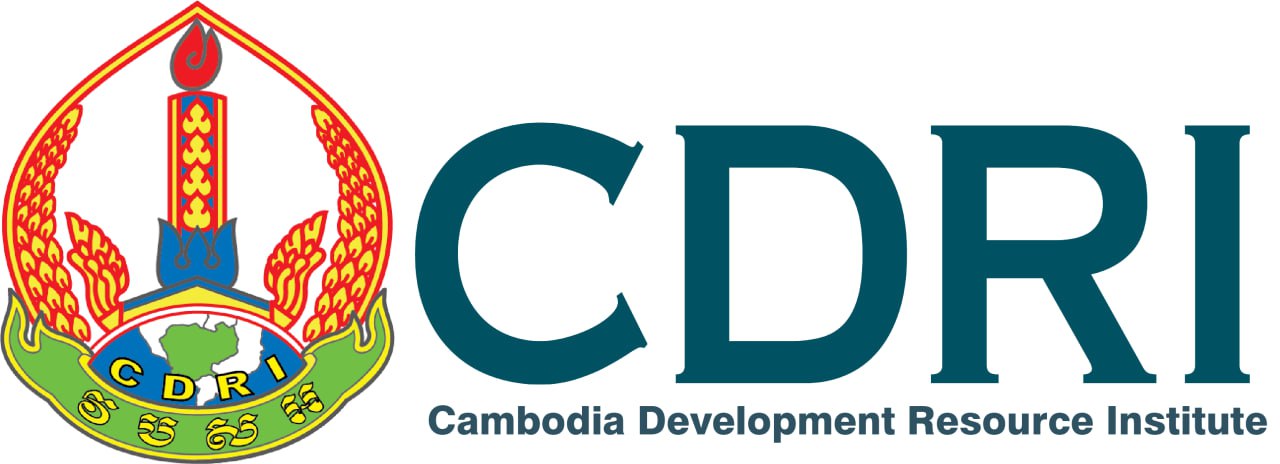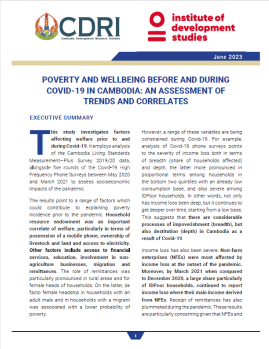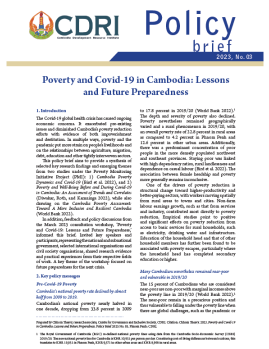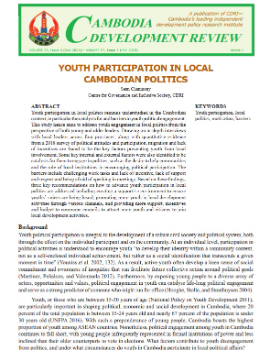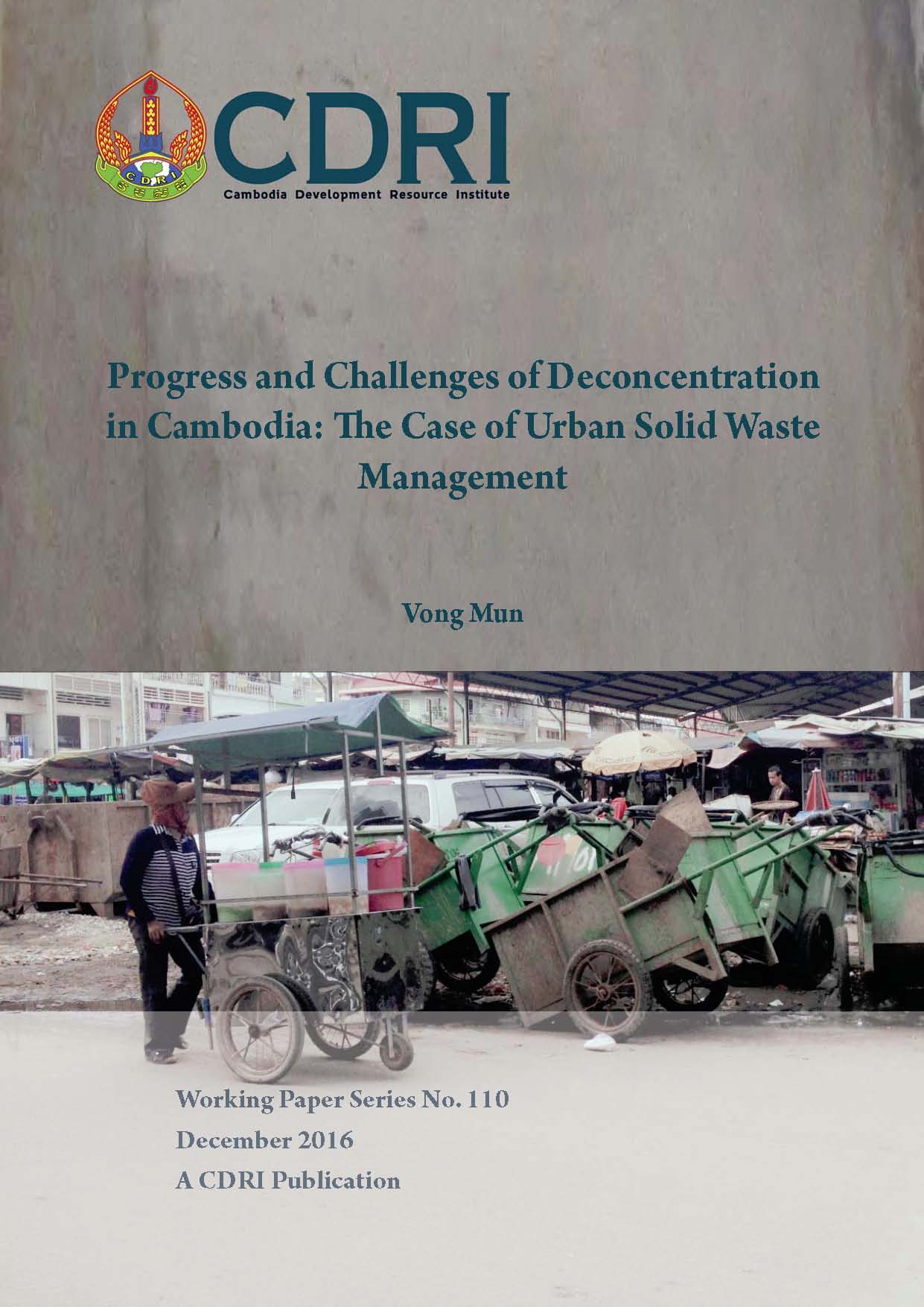
Progress and Challenges of Deconcentration in Cambodia: The Case of Urban Solid Waste Management
Abstract/Summary
Rapid population expansion and urbanisation resultant of economic
growth have greatly increased waste generation and associated public health
issues. In light of these challenges, the Ministry of Environment jointly with
the Ministry of Interior and Ministry of Economy and Finance issued in 2015 the
inter-ministerial prakas on the Usage of Environmental Sanitation Service Fund
with an initial amount of USD5 million allocated between 26 municipalities across
the country. The allocation set the stage for the transfer of the solid waste
management function to municipal and district administrations established by
the subsequent Sub-Decree on Urban Solid Waste Management. This study is
limited to solid waste management at the municipal level. More broadly, the
transfer of various functions from line ministries to municipal and district
administrations represents a new phase of decentralisation reform with an
emphasis on the long-awaited deconcentration. Based on a case study of urban
solid waste management, this paper is an early attempt to assess the progress
and challenges of deconcentration. It concludes that the functional transfer
has helped empower municipal administrations to provide solid waste services by
giving them greater responsibilities and the necessary rights and fiscal
resources, though reassignment of personnel is not part of the transfer. The
functional transfer effectively shifts the mandate for solid waste management
from the provincial level down to the municipal level accompanied by a
ministry-granted fund that is increased on an annual basis, something
provincial authorities did not have prior to the transfer. The fund is sizeable
but more is needed if the service is to be developed further. Municipal
administrations’ power to raise local revenue through waste collection fees in
the foreseeable future could strengthen the fiscal base. Local revenue
generation has long been sought by subnational administrations and its full
realisation would represent a significant step forward for decentralisation
reform. The case study suggests that municipal administrations have not
experienced major obstacles in implementing the function so far although there
are specific challenges related to interactions between provincial departments and
municipal administrations, increased workload and service provider selection. In
general terms, the case study suggests that greater rights, responsibilities
and fiscal resources can be expected to strengthen the role of municipal
administrations in local development and promote their relevance in local
accountability. The prospects, however, will be negated if centralising
tendencies do not simultaneously subside.
